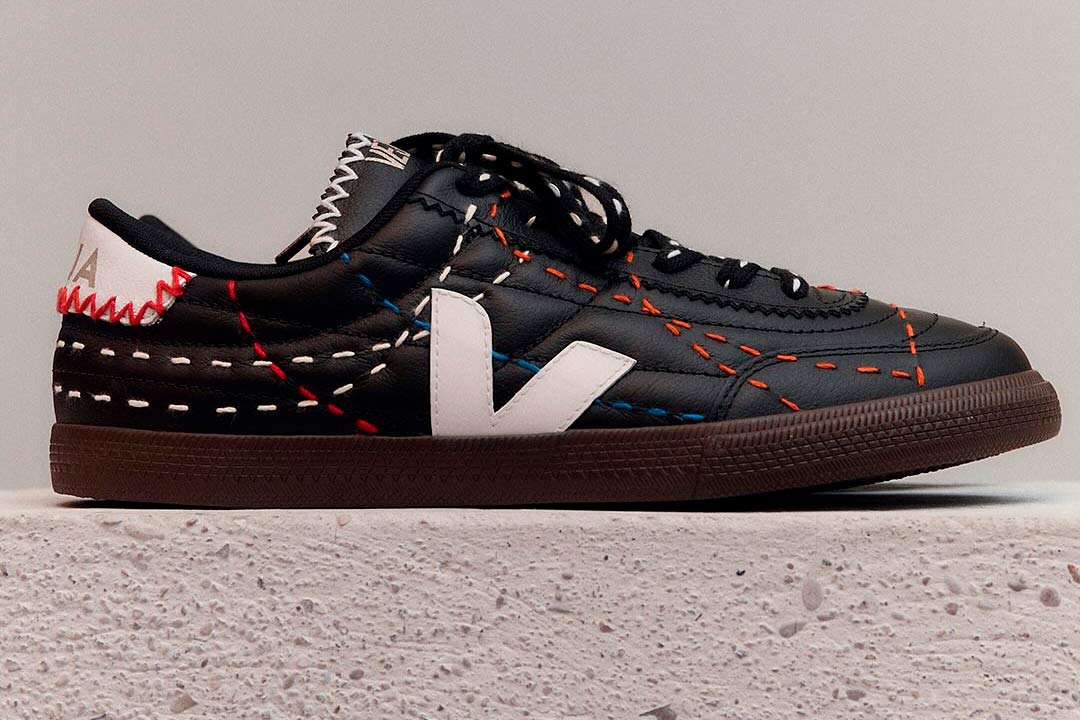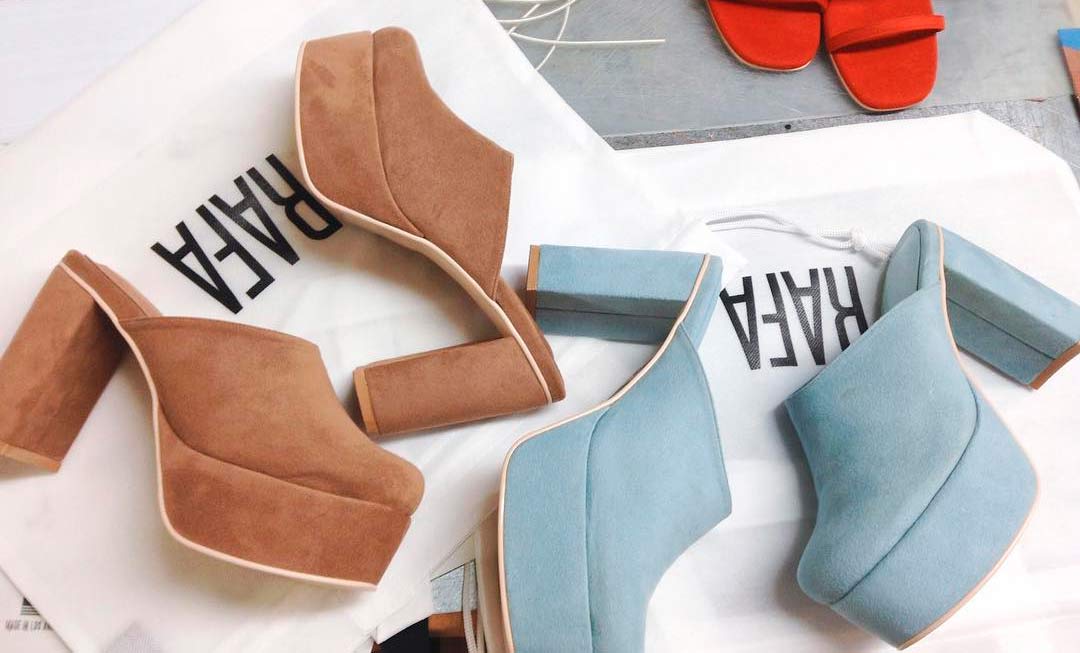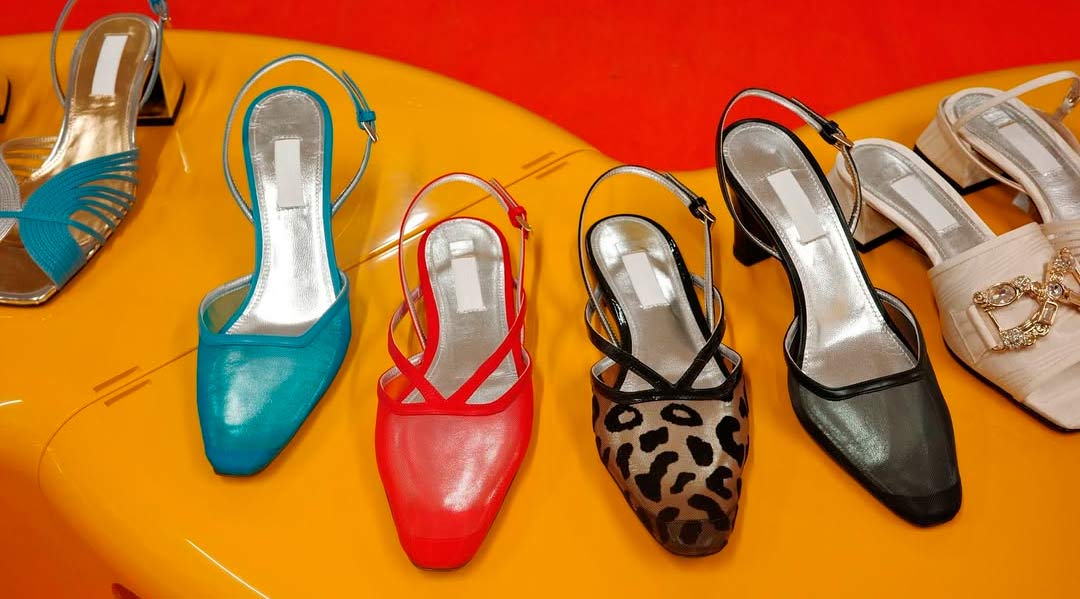Ethical footwear in 2026 blends fair-trade sourcing, vegan materials, and small-batch craftsmanship. From sneakers made with wild Amazonian rubber to handmade heels crafted locally, these designs show that comfort, sustainability, and modern aesthetics can walk side by side.
Featured Brands in This Guide:
- Veja
- Good News
- SAYE
- RAFA
- Bronze Age
- Suzanne Rae
- BY FAR
Fair Trade Sneakers That Set the Standard
Sustainability often starts from the ground up, literally. Sneakers have become the testing ground for better materials, fair labour, and transparent production. Here’s how a few brands are proving that comfort and conscience can share the same soul.
Veja

When Veja launched in 2005, sustainability wasn’t a marketing hook. It was a commitment. The Paris label built one of the world’s cleanest sneaker supply chains, sourcing organic cotton and wild Amazonian rubber through Brazilian cooperatives and producing every pair in Porto Alegre under fair-labour standards.
Its minimalist Campo and Recife lines, especially the smooth Extra White/Natural finish, have become modern staples: simple, durable, and quietly ethical. The Venturi, with its chunkier sole and recycled mesh panels, extends that formula into everyday performance, while the retro-styled Rio Branco, in tones like Paros Ouro or Nautico White/Orange, brings a sustainable twist to classic runners. Even the colour stories tell a mood shift, from the soft Full Steel or Full Winter editions to the collaborative Sunshine Yellow version created with Mansur Gavriel.
“It’s the brand people trust most,” said a Toronto retailer who’s stocked Veja since 2018. “Shoppers ask about the cotton before the colour.”
Transparency isn’t decoration here. The company openly publishes its supplier lists and annual impact audits, setting a benchmark for ethical footwear that others still chase.
Good News
If Veja plays the quiet perfectionist, London’s Good News is the bold optimist. Founders Ben Tattersall and Nia Jones reimagine 1970s sneakers with upbeat energy: bright palettes, chunky soles, and planet-friendly materials. The Pink Juice low-tops turn heads in recycled cotton canvas, while the Venus line keeps things neutral for everyday wear. Each pair arrives in recycled cardboard, and the brand’s take-back program recycles worn-out shoes into new ones.
Good News also channels its ethos into action: its “Good Luck Shoes” initiative sends donated stock to refugees in Europe and youth groups in Nigeria.
“They’re cheerful, not preachy,” said a Montreal buyer. “People love that they can do good and still wear something fun.”
SAYE
Barcelona’s SAYE has become a quiet favourite among minimalists and sneaker fans who like substance behind design. Their Modelo ’70 and Modelo ’89 reimagine retro runners in vegan corn leather and recycled mesh, made entirely in Portugal’s skilled factories.
Every pair funds tree-planting projects across India and Madagascar (more than 300,000 trees so far), and the brand publicly releases carbon reports with each new drop.
“We wanted to prove that vegan can still mean premium,” one co-founder said during a 2025 sustainability forum. “Design should lead, but ethics should guide.” The result? Sneakers that look timeless, feel great, and remind wearers that progress doesn’t have to shout.
The Handmade Comeback
In a market obsessed with fast drops and instant restocks, a few designers are going the opposite way – slow, local, and intentional. Their work proves that sustainability can come from skill, not scale.
RAFA

In a quiet Los Angeles studio, RAFA’s small team of artisans cuts, glues, and stitches every pair by hand. Using eco-friendly vegan microfibre, non-toxic dyes, and recycled materials, they’ve built a loyal following for their signature Block Heel and Two-Strap Mule.
RAFA’s design philosophy is slow, deliberate, and transparent. Each pair is made locally, with full traceability from workshop to wearer.
“Our goal isn’t perfection,” founder Jesse Kamm once said. “It’s accountability.” That sense of responsibility gives RAFA’s vegan shoes a certain architectural confidence – elegant without pretense, sustainable without the sermon.
Bronze Age
Vancouver’s Bronze Age blends West Coast minimalism with Moroccan artistry. Its footwear line includes the Black Massa Leather Glove Shoe, a hand-shaped slip-on, and the Kimi Denim Babouche, a slip-on mule shoe handcrafted from salvaged denim in small batches.
Each pair is made by Moroccan artisans using centuries-old techniques, stitched and finished one at a time. Imperfections aren’t flaws here – they’re fingerprints of the maker.
“Luxury should mean care, not excess,” one artisan told us through a local distributor. The result is footwear that feels like a cultural exchange: Vancouver’s design restraint meets Morocco’s soulful craft.
Conscious Design in the Luxury Space
For those who prefer clean lines and timeless silhouettes, sustainable design has entered its minimalist era. These designers make ethics feel effortless.
Suzanne Rae

Brooklyn-based Suzanne Rae Pelaez brings feminist thought into footwear. Her collections, like the Maryjane Pump, Feminist Loafer, and Vichy Platform, combine sculptural minimalism with biodegradable fabrics and vegetable-tanned leather.
Rae collaborates with Peruvian artisans and women’s cooperatives, ensuring fair wages and training programs. At home in New York, she supports groups like WIN and Girls Inc., tying her production values to community impact.
“Ethical fashion isn’t about restraint,” Rae told Vogue Canada earlier this year. “It’s about awareness.” Her shoes prove that ethics can look unapologetically bold. Just like the women who wear them.
BY FAR
Created by three Bulgarian sisters, BY FAR sits comfortably between old-world craftsmanship and modern design. The label’s Tanya Mule and Lana Pump are among the most photographed shoes in fashion editorials, crafted from upcycled Italian leather and produced in small, family-owned workshops.
While not fully vegan, BY FAR champions sustainability through deadstock reuse and repair programs that encourage longevity. The brand’s transparent supply chain has made it a standout in the luxury space, appealing to stylists and sustainability advocates alike.
